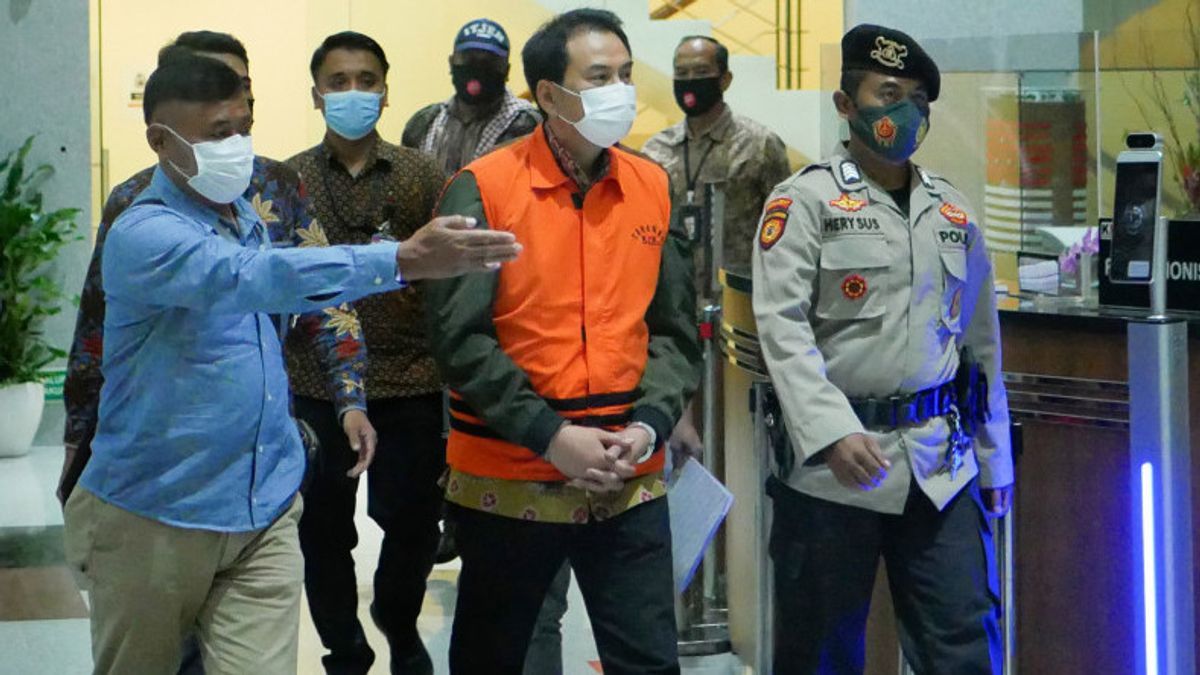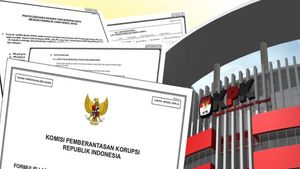JAKARTA - Former TNI Commander General (Ret.) Gatot Nurmantyo said the Army (AD) was infiltrated by the PKI. Gatot's statement became a polemic because it was considered unfounded. Call the PKI part of the dark history of the nation, but paranoia about the PKI is considered irrelevant. Or this concern could remain relevant if the PKI that Gatot meant was the 'Indonesian corruption party'. The Azis case has re-opened a discussion about the corrupt management of political parties that are prone to corruption.
Gatot's statement was based on the disappearance of statues of a number of national figures involved in the G30S/PKI incident, including Suharto from the Dharma Bhakti Museum, Kostrad Headquarters. The Commander of the Army Strategic Reserve Command (Pangkostrad) Lieutenant General Dudung Abdurachman considered Gatot to have made heinous accusations.
Dudung explained that the statues that Gatot was referring to had been moved because the previous Commander of Kostrad, Lt. Gen. (Ret.) Azym Yusri Nasution, made the statues. According to Dudung AY Nasution, he felt guilty based on his religious beliefs because he had made the statues.
Dudung also rejected Gatot's opinion that the withdrawal of the statues was a sign that the TNI had forgotten the G30S/PKI incident. "So I cannot refuse the request in question," Dudung told reporters.
"I and Lt. Gen. (Ret.) AY Nasution share the same commitment that we will not forget the killing of senior generals of the Indonesian Army and the first officer Captain Piere Tendean in that incident," added Dudung.
TNI Commander Marshal Hadi Tjahjanto chose to avoid polemics. Hadi responded to Gatot's statement as senior advice to TNI soldiers who are still active so that they continue to be aware of the potential for the repetition of the nation's dark history related to the PKI. "I don't want to have polemics about things that can't be proven scientifically," Hadi told reporters.
PKI to worry aboutThe detention of the Deputy Speaker of the House of Representatives, Azis Syamsuddin, as a suspect in bribery in the management of cases in Central Lampung Regency has again opened discussions about the corrupt management of political parties in Indonesia. prone to corruption. A number of data strengthen the logic that almost all criminal acts of corruption are rooted in the management of political parties: the Indonesian corruption party (PKI).
Perhaps it is the PKI that is more of a concern now. The Indonesian Political Indicators Survey published a few days ago showed the bleakness of the DPR in the eyes of the public. The survey noted that only 50 out of 1,200 or 4.1 respondents believed in the DPR. Meanwhile, 36 percent said they had little faith. The rest, nine percent do not trust the DPR.
The low level of trust in the DPR cannot be separated from how the public sees political parties as corrupt institutions. Coordinator of Indonesia Corruption Watch (ICW) Adnan Topan Husodo said the corrupt behavior was translated from the performances of politicians who were far from productive and tended to be corrupt.
"It is also possible that corrupt behavior is actually related to the ineffectiveness of the strategic functions of the people's representatives. For example, to carry out supervision, be transparent on budgeting, and so on. Such things are processed in people's thinking, which is then translated 'We don't trust the DPR and parties. politics,'" Adnan told VOI, Tuesday, September 28.

And this depravity is structural. The Indonesian Political Indicators Survey which focuses on the DPR is not the only data to see the chaotic and corrupt figures produced by political parties. In 2019, ICW ranked the top ten institutions with the most findings of corruption cases. As a result, the government at the district level became the largest institution with 95 cases.
Corruption cases at the district level have cost the state up to IDR 6.1 trillion, according to data at the time. The second most corrupt institution is the village government, with a record of 48 cases. The state lost around IDR 32.7 billion due to corruption in this area. The most corrupt institutions resulting from ICW's ranking are city governments, ministries, state-owned enterprises and regional governments.
So what is the common thread between the DPR and the district government? In the end, it all goes back to how the political system is built and maintained within political parties. Corruption is basically a crime of office. In other words, whoever has power, whether small or big, they always have the potential to commit corruption.
"Actually, something is almost the same because it departs from the same source, namely Indonesian political parties, which are indeed not encouraged to carry out comprehensive institutional reforms. Whereas in the context of public interest, political parties are a means to reproduce candidates for public officials who will later become public officials. will sit as an official who will determine the policies of the state government, both at the central and regional levels," Adnan.
Fixing political parties, is it possible?
In 2016 and 2017, the KPK in collaboration with P2P LIPI conducted a study. The study resulted in the concept of the Political Party Integrity System (SIPP). There are five main problems that cause the low integrity of political parties.
The absence of ethical standards for parties and politicians. Recruitment system that is not standardized. The regeneration system is not yet tiered and not yet institutionalized. The management and reporting of party funding originating from the state is still low. Internal party democracy is not yet developed.The ICW coordinator explained that the mapping of the problem resulted in a number of recommendations that parties should adopt in good faith to improve integrity and accountability. The first is about the internal recruitment mechanism, for example.
"It is hoped that it will also change the behavior of political officials because it is a problem within the party because recruiting cadres is inconsequential, yes. There is no system or mechanism. Anyway, those who are close to the elite are then drawn in. Those who have money get positions," Adnan.
"And that's a bad thing because then political officials who become party cadres and public officials, then have no integrity parameter at all. That's what we see as one of the strategic issues in the body of political parties."
Then there is the matter of ethical standards. According to Adnan, there was a misperception in seeing political parties. So far, we are used to seeing political parties as private bodies, so it seems as if the ethics of the politicians in them cannot be concretely corrected by the public.
Whereas ideally the state should design a political system that places political parties as public institutions. That way the public has more absolute power to determine the people who become their representatives. And political parties are no longer just vehicles for investors.
"It's as if parties don't need ethics. Even though parties are in the public sector. That's one of the difficulties because in the Indonesian context the party is considered a private body, not a public body... In various countries, the party is positioned as the public sector ."
"That's why there was a discourse that the state fully bears the party's finances. Because that's the only way the party will no longer be controlled by the owners of capital... If that's what we can do, we won't be too worried because accountability must refer to accountability for public budget management. BPK audit. It must be opened as wide as possible. The public can also ask for information," said Adnan.
The relationship between political parties, power, and corruption is too structural. Such a dilapidated system then becomes an illusion as if transactional dowry is a natural thing and even then becomes a habitus. The irony is getting heavier for the pace of eradicating corruption when corruption is already embedded in the scope of the authority of the power and authority holders.
*Read other information about CORRUPTION or read other interesting articles from Yudhistira Mahabharata.
Other BERNASThe English, Chinese, Japanese, Arabic, and French versions are automatically generated by the AI. So there may still be inaccuracies in translating, please always see Indonesian as our main language. (system supported by DigitalSiber.id)








